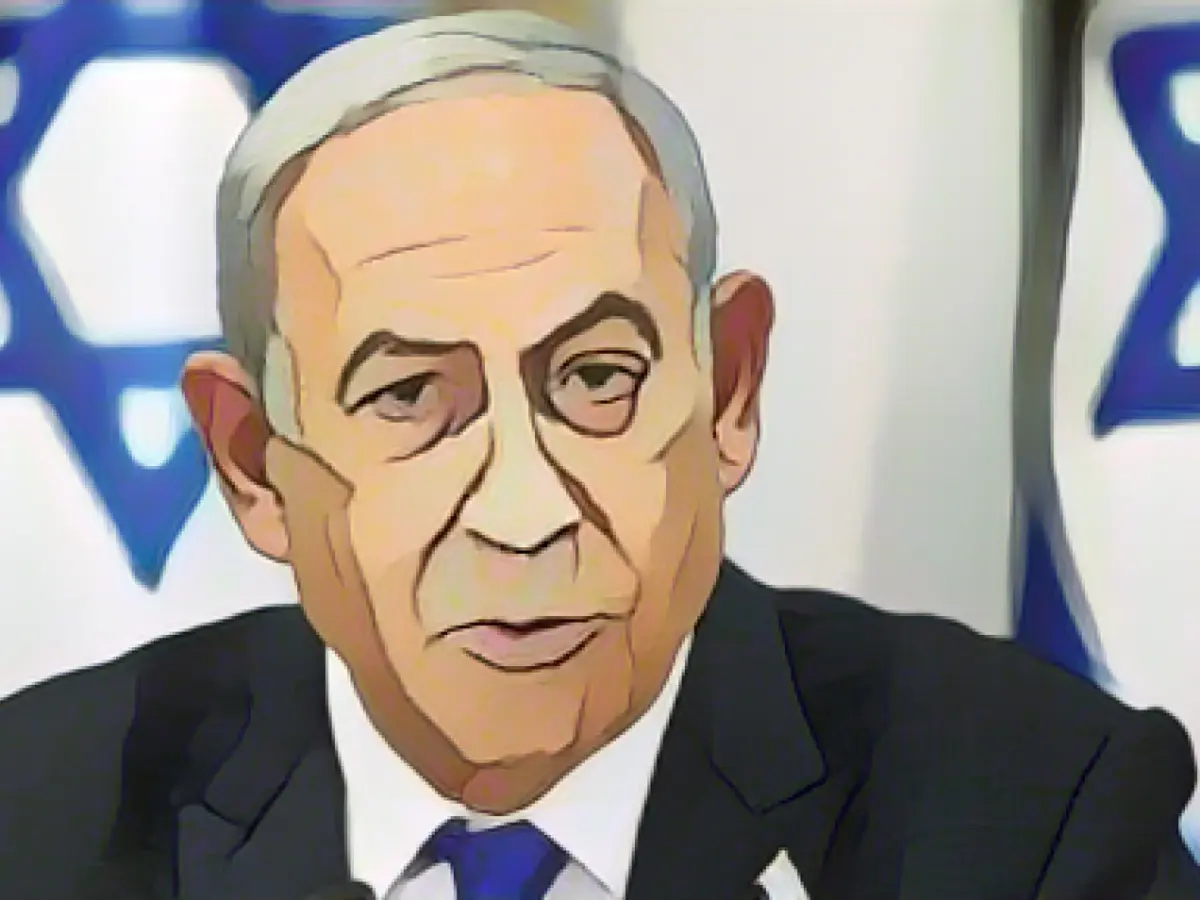Isreal's Prime Minister, Netanyahu, Warns of Long, Costly Battle Against Hamas in Gaza
For the past few days, the Israeli military has been dealing with a significant loss, with 14 soldiers killed since last Friday. Ten of these soldiers perished on Saturday, making it one of the deadliest days for the Israeli army since the Israeli ground operation in the Gaza Strip started on October 27. In total, 153 soldiers have lost their lives in the Gaza Strip since the war began.
Netanyahu, unyielding in his resolve, emphasized that the ongoing battle against Hamas in the Gaza Strip would be a lengthy struggle until the extremist Islamic group is eradicated. Israel, he declared, would press on with full force until victory is achieved, and all objectives are met.
The war erupted in October, triggered by Hamas' major attack on Israel. Hundreds of Hamas fighters, classified as terrorists by the EU and the USA, infiltrated Israeli towns, committing atrocities against civilians. According to Israeli reports, about 1140 people were killed, and around 250 taken hostage in the Gaza Strip.
Since then, Israel has been launching massive attacks on the Palestinian territory, aiming to destroy Hamas. The Hamas-controlled Ministry of Health has reported that over 20,420 people have been killed, although these figures cannot be independently verified.
More News
In the face of mounting international pressure to halt the violence, Netanyahu maintained that the war against Hamas would come at a "very high price." Protests and demonstrations stirred across Gaza, demanding an end to the hostilities and a return to peaceful negotiations.
Senior Hamas leaders, vowing to continue the fight against Israel, refused to back down despite the high cost to both their own people and civilians in Israel. The Israeli military has been accused of employing disproportionate force in the Gaza Strip, leading several human rights organizations to call for an independent investigation into alleged war crimes.
The UN and other world powers have implored Netanyahu and Hamas leaders to explore a political solution to resolve the crisis, acknowledging the heavy toll the war is taking on civilians on both sides. However, calls for peace and an end to the violence have yet to yield any diplomatic breakthrough.
The International Community's Response
The conflict in the Gaza Strip is currently under a ceasefire agreement that has been in effect since January 19, 2025, following 15 months of intense conflict.
Under the agreement, brokered by the United States, Egypt, and Qatar, the first phase consists of a six-week ceasefire, hostage releases, and humanitarian aid. The second phase entails a permanent ceasefire, hostage releases, and reconstruction efforts. The last phase involves Israel's withdrawal from Gaza, lasting between three to five years.
Despite the ceasefire, both sides have been accused of violations, leading to delays in the hostage exchange. The United Nations Security Council has offered support for the ceasefire proposal, but implementation of UNSC resolutions has been challenging due to vetoes and insufficient votes.
Qatar and Egypt are coordinating their efforts to mediate the conflict and maintain stability in the region. The United States has played a significant role in the negotiations, with Joe Biden's team receiving recognition for facilitating the agreement.
Netanyahu has emphasized a "very high price" for the elimination of Hamas, while former U.S. President Donald Trump proposed the U.S. taking ownership of the Gaza Strip, developing it economically, and resettling Palestinians to other countries, facing significant opposition.
The international community continues to stress the importance of humanitarian aid and reconstruction efforts in the Gaza Strip. Despite calls for accountability and legal measures against Israel, no concrete actions have been taken yet.




